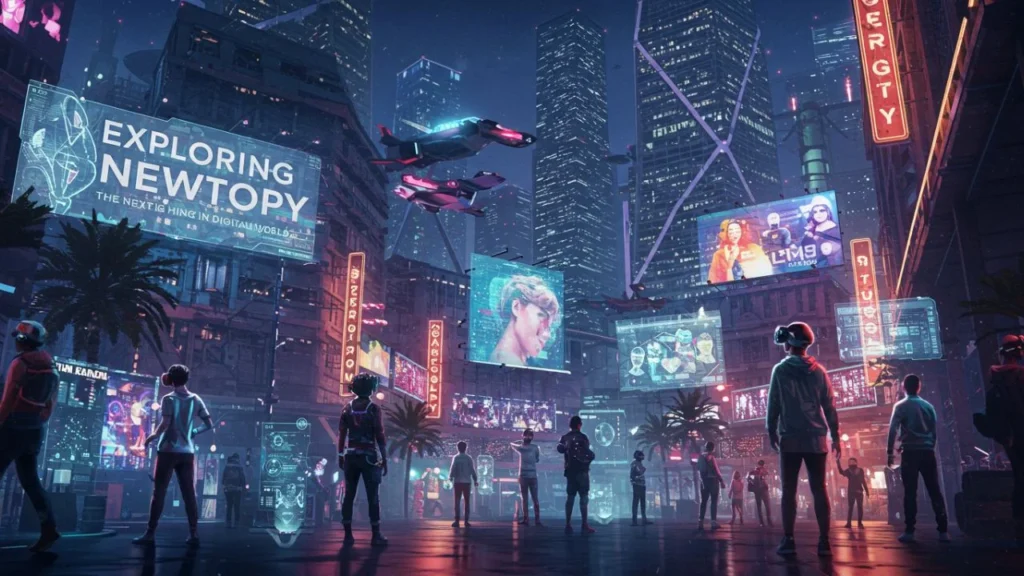In a world constantly reshaped by technology, creativity, and innovation, Newtopy has emerged as a concept that captures the essence of forward-thinking development. The word “Newtopy” combines “new” and “utopia,” suggesting a vision of an ideal, innovative future built on progress, sustainability, and human-centered design. While the term may sound futuristic, it represents a mindset that is very much relevant today—one that seeks harmony between technological growth and human well-being.
The Meaning Behind Newtopy
At its core, Newtopy symbolizes a new kind of utopia—one that is realistic, inclusive, and achievable. Unlike traditional utopian ideals that often focus on perfection, Newtopy accepts imperfection as part of growth. It represents a future where technology serves humanity rather than replacing it, where communities thrive alongside innovation, and where progress is guided by ethical and sustainable values.
In simple terms, Newtopy is a blueprint for the next era of innovation, where creativity, empathy, and responsibility intersect to create meaningful advancements.
The Vision of a New Era
The vision behind Newtopy extends beyond mere technology. It is about building systems, communities, and industries that balance human needs with digital transformation. Imagine a world where artificial intelligence helps enhance education rather than replacing teachers, where smart cities use technology to protect the environment instead of exploiting it, and where businesses prioritize social impact as much as profit.
This is what Newtopy envisions—a world shaped by mindful innovation. It encourages a new generation of thinkers, creators, and leaders to question not just how we innovate, but why.
Principles of Newtopy
The concept of Newtopy rests on several key principles that guide its vision for a better future:
-
Human-Centered Innovation – Technology should enhance human experience, not control it.
-
Sustainability – Innovation must be designed with the planet in mind, reducing waste and protecting resources.
-
Inclusivity – A true Newtopy ensures that progress benefits everyone, regardless of background or status.
-
Ethics and Responsibility – Innovation should always align with moral and ethical standards.
-
Creativity and Collaboration – Newtopy thrives on collective intelligence and shared creativity.
These principles create a framework for developing solutions that are both visionary and grounded in reality.
Applications of Newtopy in Modern Society
While Newtopy may sound like a conceptual idea, it already influences various fields today.
-
Technology and AI: Developers are creating artificial intelligence systems designed to assist rather than replace human workers. This approach reflects Newtopy’s balance between innovation and humanity.
-
Urban Development: Smart cities are adopting eco-friendly technologies—like renewable energy and intelligent traffic systems—to improve living conditions sustainably.
-
Education: Schools and universities are embracing digital learning platforms that make education more accessible and engaging.
-
Business and Economics: Companies are shifting towards ethical business models that focus on social responsibility, diversity, and sustainability.
Through these examples, we can see Newtopy’s growing influence in shaping a future where progress is more mindful and meaningful.
Challenges on the Road to Newtopy
Every visionary concept faces challenges, and Newtopy is no different. The biggest hurdle lies in aligning human ambition with ethical responsibility. While technology offers immense potential, it also brings risks—such as job displacement, data privacy concerns, and environmental impact.
To truly achieve the ideals of Newtopy, governments, businesses, and individuals must work together to ensure innovation benefits all of humanity. This requires education, transparency, and collaboration on a global scale.
The Future of Newtopy
Looking ahead, Newtopy could become a defining philosophy of the 21st century. It promotes not only smarter innovation but also compassionate progress. By merging science, art, and ethics, it aims to create a world where technological development leads to a better quality of life for everyone.
In the future, Newtopy might influence policy-making, urban design, and even global cooperation, guiding humanity toward a balanced relationship with technology and nature.
Conclusion
Newtopy is more than just a futuristic idea—it is a reflection of our collective desire to build a better world. It challenges us to rethink innovation through a lens of empathy, sustainability, and shared progress. As society continues to evolve, embracing the principles of Newtopy can help us create not a perfect world, but a possible one—where technology and humanity walk hand in hand toward a brighter future.
In essence, Newtopy reminds us that the real power of innovation lies not in what we can create, but in why we create it.
